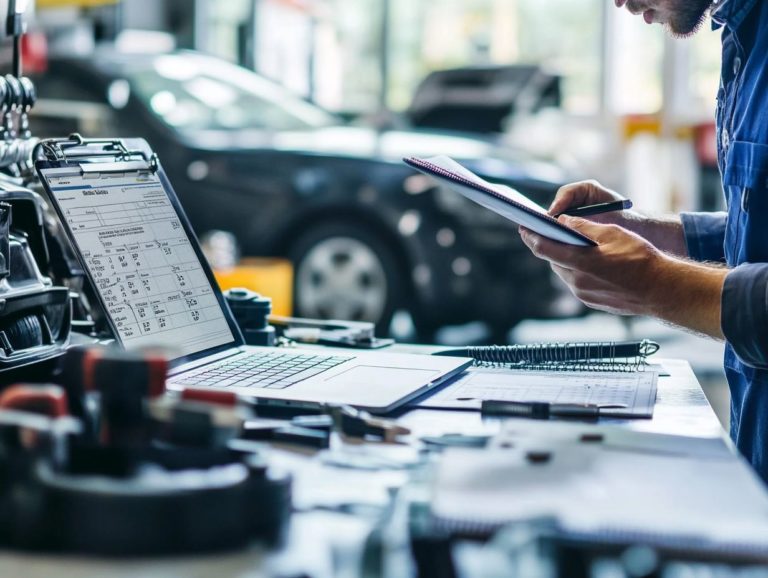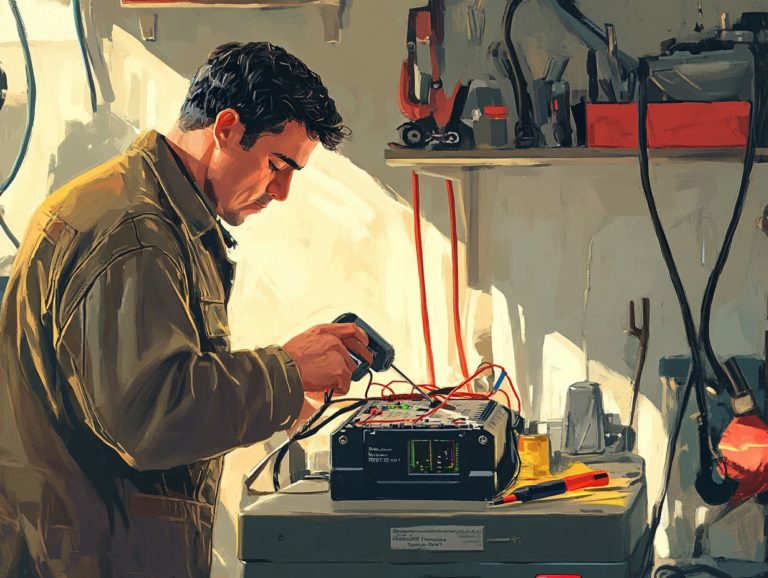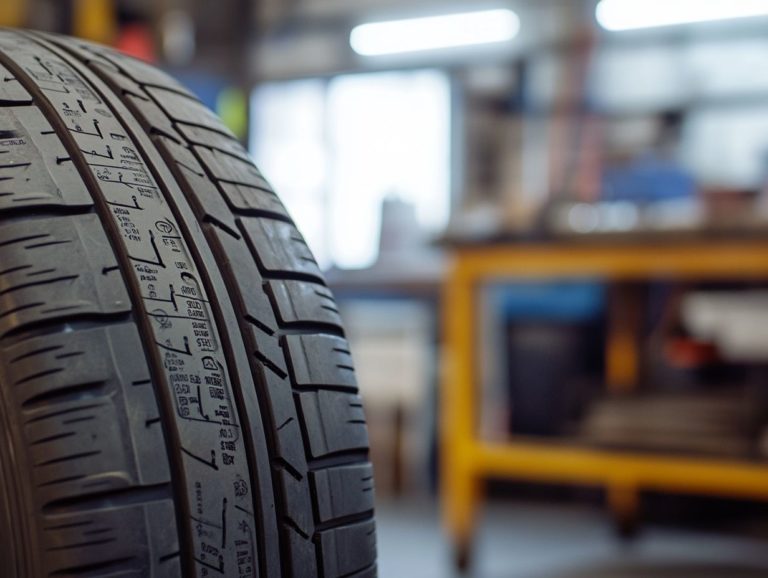What Should You Do After an Accident?
Accidents can be incredibly overwhelming. They often plunge you into a state of shock and uncertainty. Understanding the essential steps to take immediately afterward can make all the difference.
These steps ensure your safety, protect your rights, and set the stage for recovery. From seeking medical attention and documenting the scene to navigating insurance claims and exploring your legal options, this guide equips you with everything you need to know.
You will also find tips on how to prevent future accidents, empowering you to regain control and restore your peace of mind.
Contents
- Key Takeaways:
- Steps to Take Immediately After an Accident
- Documenting the Accident
- Dealing with Insurance Companies
- Legal Options for Compensation
- Recovering from the Accident
- Preventing Future Accidents
- Frequently Asked Questions
- What should you do immediately after an accident?
- Should I call the police after an accident?
- What information should I exchange with the other driver?
- Do I need to take pictures at the scene of the accident?
- Should I talk to the other driver’s insurance company?
- What should I do if I am injured in an accident?
Key Takeaways:
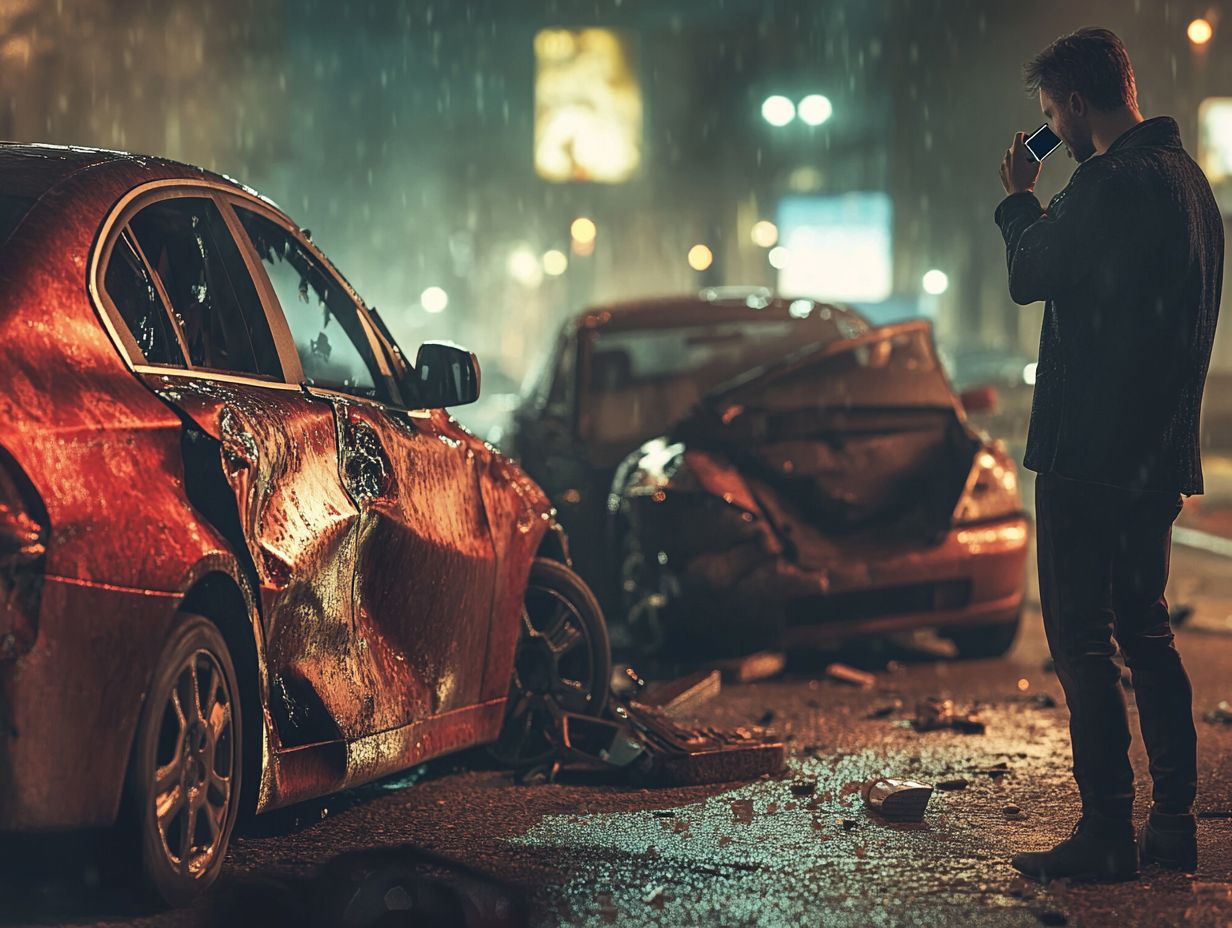
- Seek medical attention and ensure safety immediately after an accident to prevent further harm.
- Collect evidence and file a report to support any legal claims and receive proper compensation.
- Understand your rights and responsibilities when dealing with insurance companies to avoid being taken advantage of.
Steps to Take Immediately After an Accident
Experiencing a car accident in Florida can be overwhelming. However, the actions you take right after can greatly influence your injury claim and the effectiveness of your medical treatment.
Act swiftly and prioritize safety by confirming everyone s well-being. Immediately call emergency services if necessary. Make sure to document the accident scene meticulously.
These steps not only support your recovery but also streamline the claims process with your insurance company and law enforcement. Understanding the traffic conditions and gathering vital witness information are key elements in navigating the tumult that often follows an accident.
Ensuring Safety and Seeking Medical Attention
Ensuring your safety and seeking medical attention are crucial steps to take immediately after a car accident. For more detailed guidance, you can explore what to do after a minor car accident. These actions can greatly influence the recovery journey for everyone involved.
Start by assessing the condition of everyone affected. Determine if urgent medical assistance is necessary. Prioritizing well-being is vital, especially since some injuries may not be immediately visible.
Next, calling emergency services is essential. They provide necessary medical intervention and meticulously document the accident scene, which can prove invaluable for injury claims.
Once at the hospital, expect complete medical check-ups, diagnostic tests (tests that help doctors understand your injuries), and personalized treatment plans. Having accurate medical records becomes essential for establishing the extent of injuries. This facilitates smooth communication with insurance providers and strengthens your claims for compensation.
Documenting the Accident
Documenting the accident is an essential step that can greatly influence your insurance claim and any potential legal proceedings that may arise after a car accident.
Gather evidence at the scene, such as photographs, witness information, and police reports. These details bolster your claim process.
Make sure to note the traffic conditions at the time of the accident. Also, take note of any visible damages to create a clear narrative of what occurred. This thorough documentation acts as a solid foundation for your legal options and helps to ensure that you receive fair compensation for the damages you’ve incurred.
Collecting Evidence and Filing a Report
Collecting evidence and filing an accident report are crucial steps. These actions can significantly impact your insurance claim and potential personal injury case.
Methodically document the scene take clear photographs of vehicle damage, road conditions, and any relevant traffic signs. This creates a visual record that strengthens your narrative. Gathering contact information from witnesses can offer invaluable testimonies to validate the facts of the incident.
The importance of filing a police report cannot be overstated. It serves as an official account of the event, further solidifying your case. These comprehensive documents enhance your position when dealing with the insurance company and pave the way for a more straightforward claims process.
If you’ve been in an accident, don t hesitate! Reach out for legal advice today.
Dealing with Insurance Companies
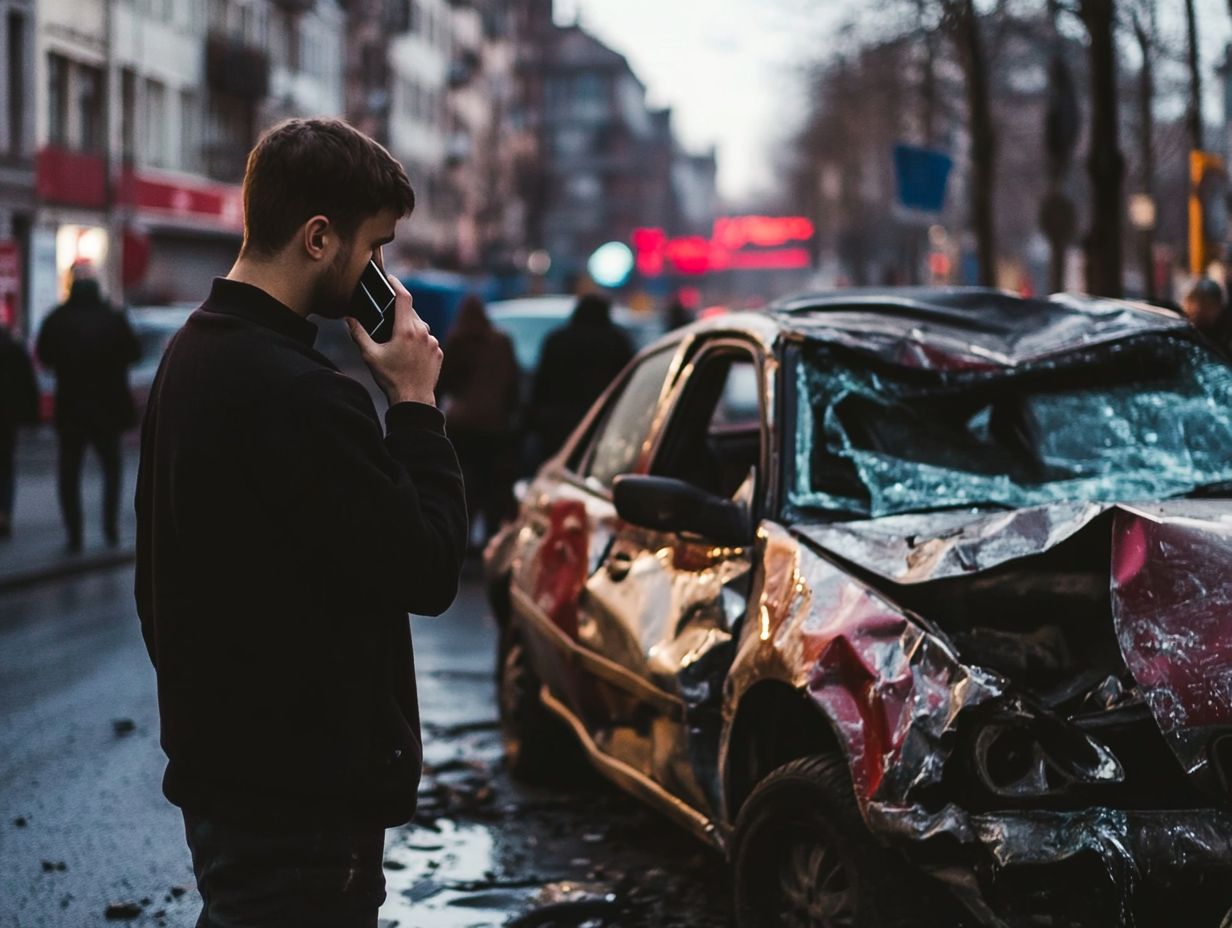
Navigating insurance companies is crucial after an accident. You need to understand both the claims process and your specific insurance policy.
In Florida, where no-fault insurance laws are in play, engaging in thoughtful conversations with your insurance adjuster is essential. This will help you secure fair compensation for the damages you’ve experienced.
Knowing your rights and responsibilities will help you during this stressful time. You’ll need to present evidence and documentation effectively to bolster your claim, ensuring that your voice is heard and respected.
Understanding Your Rights and Responsibilities
Understanding your rights and responsibilities after a car accident is essential. It allows you to navigate the intricacies of the claims process and ensures you receive adequate compensation for your losses.
Being well-versed in Florida s insurance laws can boost your confidence when interacting with insurance adjusters. You should know your rights to timely information and regular updates on your claims.
Effective communication is key. Clearly state your needs and keep a record of all conversations. Provide necessary documentation without delay.
If you face denials or delays in your claims process, knowing your legal options such as mediation or pursuing a lawsuit can enable you to take decisive action. Use these insights to advocate effectively for your rights and work towards a fair resolution.
Legal Options for Compensation
Legal options for compensation after a car accident are essential. They ensure you receive fair restitution for your injuries and damages. Hiring a car accident attorney can greatly enhance your ability to navigate the complexities involved.
You should know the types of damages you could claim, such as medical bills, lost wages, and pain and suffering. This knowledge is vital for building a robust case against those responsible for the incident.
Hiring a Personal Injury Lawyer
Hiring a personal injury lawyer is crucial as a car accident victim. This step helps you navigate the often tricky landscape of legal options and insurance claims.
With expert guidance, you can gain a significant edge as you confront the complexities of personal injury laws. A qualified attorney brings invaluable experience, especially in negotiating with insurance companies. They ll work to ensure you receive a fair settlement that truly reflects your damages and suffering.
Understanding the intricacies of the law and the tactics employed by insurers can make all the difference. An attorney can provide comprehensive support, from gathering evidence to calculating the full extent of your medical expenses, lost wages, and pain and suffering. This assistance maximizes the compensation you deserve.
Recovering from the Accident
Recovering from a car accident encompasses both physical and emotional dimensions. You need a well-organized approach to address every facet of personal injury.
The steps you undertake during recovery such as seeking appropriate medical treatment and managing expenses significantly influence your overall well-being and successful rehabilitation.
The emotional recovery is equally crucial. The trauma from a car accident can leave lasting effects on your mental health and overall quality of life. Taking time to address these emotional aspects is essential for a comprehensive recovery.
Don’t wait start securing your fair compensation today!
Physical and Emotional Recovery
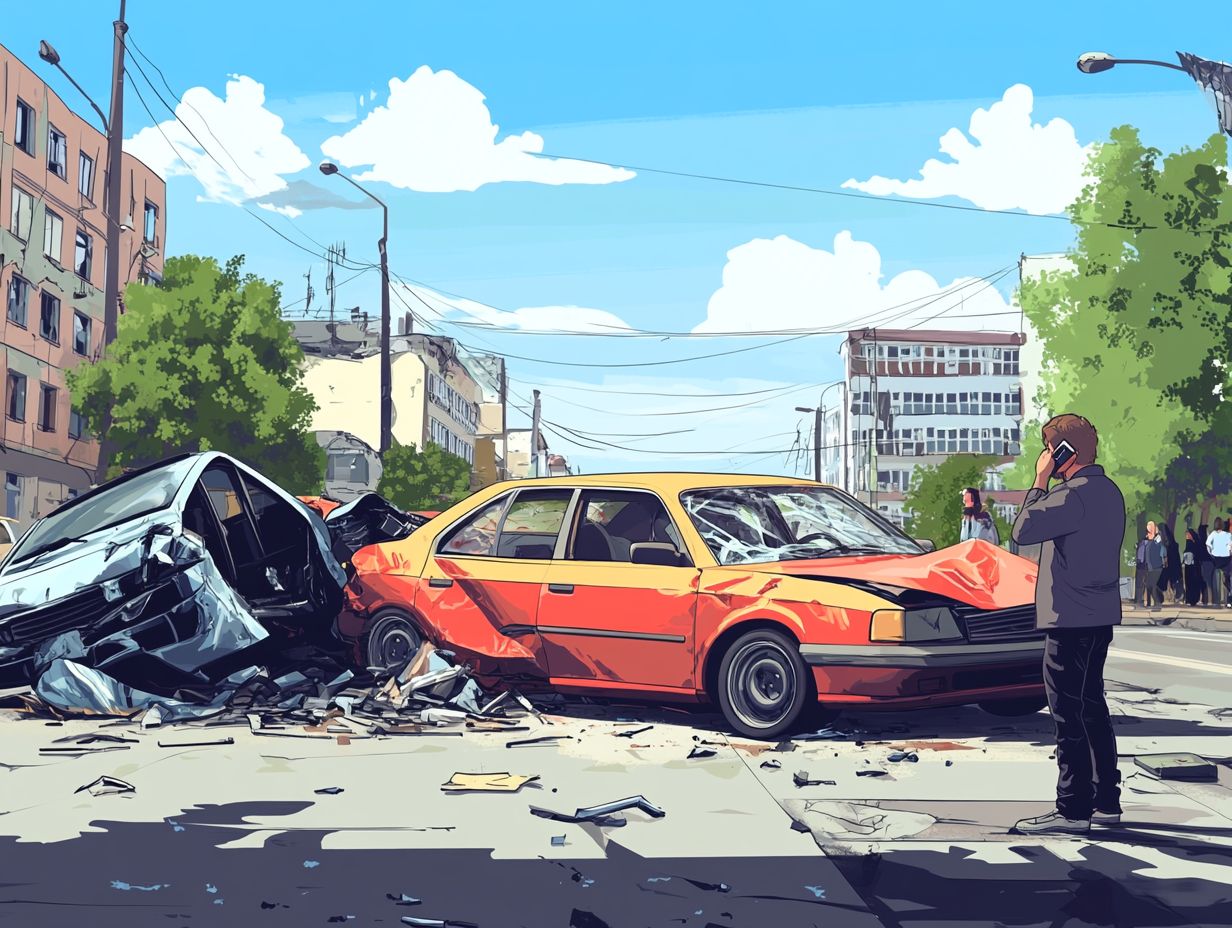
Physical and emotional recovery after a car accident are intricately linked processes. They demand your careful attention to both medical treatment and psychological support.
Your journey to healing involves more than just sticking to prescribed medications and therapeutic interventions. It requires an understanding of how your emotional well-being profoundly influences your physical health.
Many patients underestimate the significance of mental health. They mistakenly believe that physical injuries are the only concern in their recovery. In reality, engaging in therapy can address trauma and anxiety common byproducts of such life-altering experiences.
By prioritizing both aspects, you cultivate resilience. This paves the way for a holistic recovery. Furthermore, this dual focus can lead to significant financial benefits, as a comprehensive approach often reduces long-term healthcare costs.
It becomes clear that prioritizing emotional support is just as vital as adhering to medical recommendations.
Preventing Future Accidents
Preventing future accidents is crucial not just for your own safety, but also for the well-being of everyone else on the road. It s imperative that you understand traffic conditions and adopt effective communication strategies.
Being aware of potential hazards can significantly lower your chances of encountering another accident. Taking proactive measures like practicing defensive driving, which means driving carefully to avoid accidents, and staying updated on the latest traffic regulations can greatly enhance your road safety and help mitigate risks.
Tips for Avoiding Similar Situations
Tips for avoiding similar situations enable you to take proactive steps in accident prevention. This ensures greater safety on the roads.
By remaining mindful of traffic conditions and adapting to changing environments, you can significantly reduce the likelihood of mishaps. Utilizing communication tools, such as hands-free devices for navigation and emergency contacts, enhances your connectivity while keeping your attention firmly on the road.
Adopting defensive driving techniques like maintaining a safe following distance and anticipating the actions of other road users proves invaluable. These practical strategies work together to create a safer driving experience.
This allows you to navigate with confidence and contribute to a culture of road safety that benefits everyone.
Frequently Asked Questions
What should you do immediately after an accident?
Check for injuries, call for emergency assistance if needed, and move your vehicle to a safe location if possible.
Should I call the police after an accident?
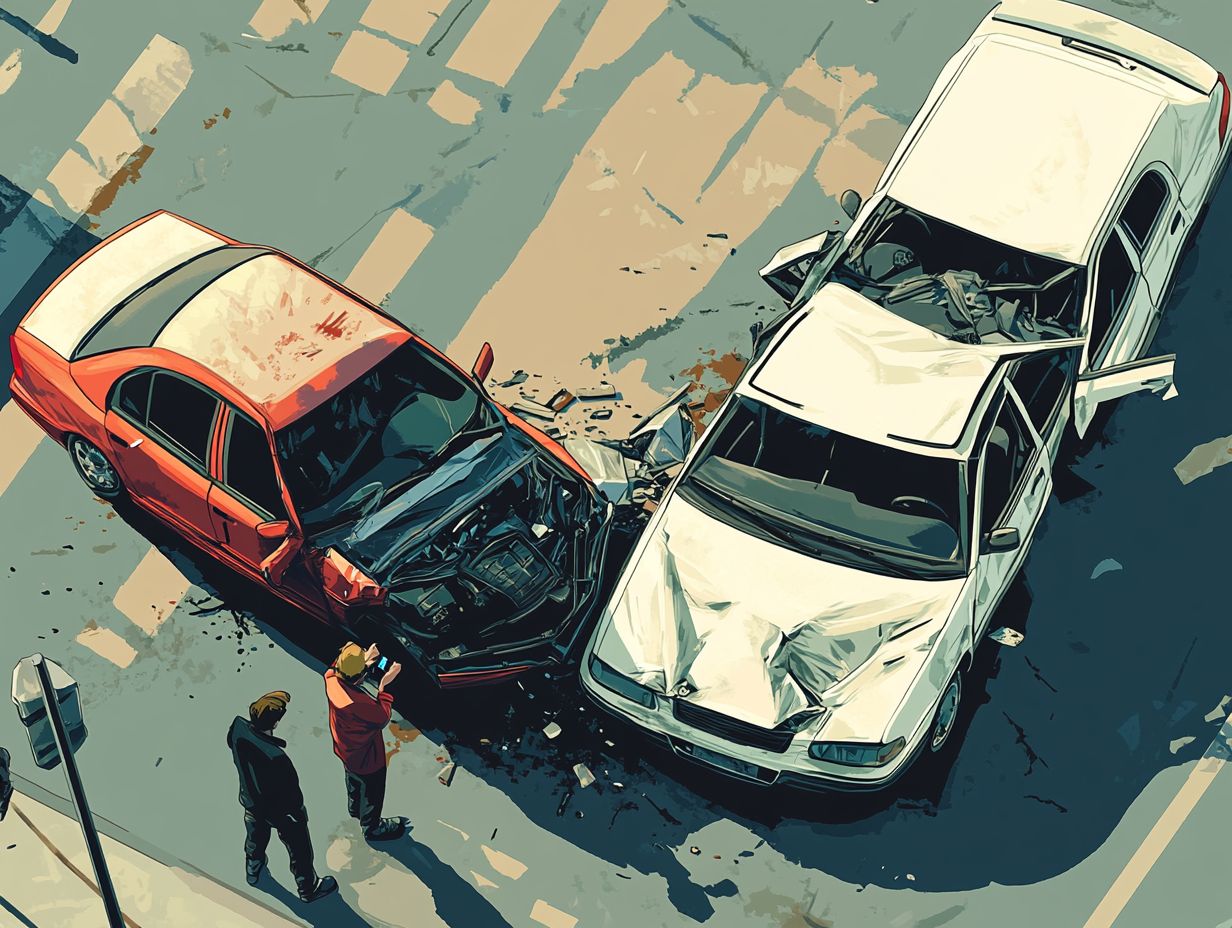
Yes, you should always call the police after an accident, no matter how minor it may seem. This will ensure an official report is filed and can help with insurance claims.
What information should I exchange with the other driver?
You should exchange insurance information, contact information, and driver’s license information with the other driver involved in the accident.
Do I need to take pictures at the scene of the accident?
Don’t forget to snap pictures at the scene! They can be crucial for your case, including the damage to both vehicles and any relevant road conditions or traffic signs.
Should I talk to the other driver’s insurance company?
No, it is best to avoid speaking to the other driver’s insurance company. Instead, let your own insurance company handle all communication and negotiations.
What should I do if I am injured in an accident?
Seek medical attention as soon as possible. Always document your injuries your health and your insurance claims depend on it. Even if you do not feel injured at the time, some injuries may not show symptoms until later.

